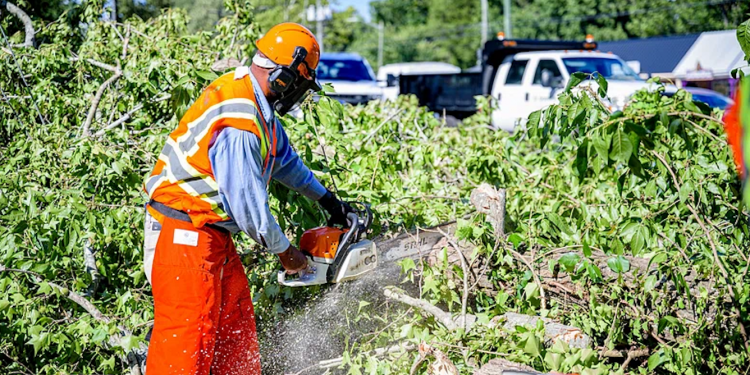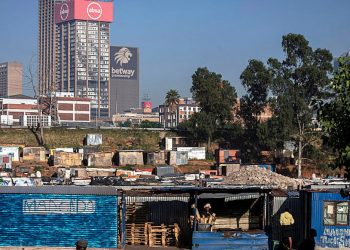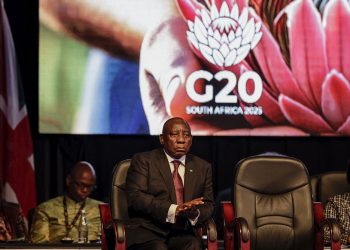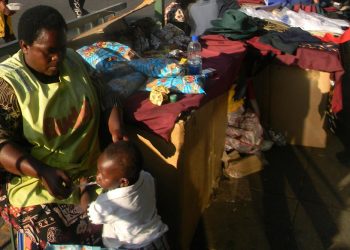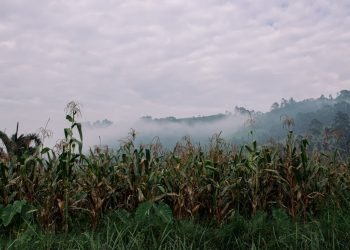South Africa’s Expanded Public Works Programme is part of its social safety net. It complements the country’s social grants system, which has over 28 million recipients.
The public works programme helps fill a gap for people who fall outside the grant system, especially those who need work experience and skills training if they’re to get a job. These include unemployed young people, women and people with disabilities.
One of the programmes under its umbrella is the Working for Water programme, which was launched in 1995. It was intended to control invasive alien plants so as to conserve water resources, and provide short-term employment and training for people not covered by the grants safety net.
Since its inception, the programme, alongside other interventions targeted at the environment, has created over 200,000 person years of employment – the total number of days people were afforded work. More than half of these employment opportunities have been held by women, and more than 60% by young people under the age of 35 years.
In my PhD research, I examined one of its flagship projects to assess its impact on the long-term livelihoods of beneficiaries. My aim was to determine whether the programme was achieving its intended role as a social protection mechanism.
I found that the way the project was designed limited its potential to foster long-term livelihoods for participants. Long-term livelihoods are defined as the ability to achieve lasting economic stability and growth beyond the scope of the project itself.
One key issue was the inconsistency in the number of workdays participants were assigned, as well as the quality and availability of the skills training they received. Specifically, the training lacked regularity and did not always align with market demands. It left participants without the practical, job-ready skills needed for sustained employment.
This problem was compounded by budget cuts.
Based on my findings, I propose key changes to improve the programme’s effectiveness: the provision of consistent funding and training that’s aligned to labour market needs.
The project
The project I looked at tackles the clearing of invasive Prosopis mesquite trees in the Northern Cape. This has involved clearing nearly 314,580 hectares of invaded land in that province.
Spanning from 2004 to 2018, the project supported over 9,000 beneficiaries across three phases. In phase I (2004–2008), 2,411 people participated; in phase II (2009–2013), 2,861; and in phase III (2014–2018), 3,756.
The project targeted youth, women and people with disabilities. Beneficiaries were spread across various age groups: 36–64 years in phase I, 22–35 and 36–64 years in phase II, and 18–35 years in phase III.
Participants were paid monthly stipends which ranged from R2,900 to R5,000, which is equivalent to approximately US$157 to US$271 – higher than most South African social grants. For comparison, the disability social grant is R2,180 (US$118), the older person’s grant is R2,200 (US$119), the foster child grant is R1,180 (US$64), and the child support grant is R530 (US$28).
I developed an evaluation framework to assess the programme’s impact on the long-term livelihoods of beneficiaries.
The study was carried out over 14 days in 2020, coinciding with the height of the COVID-19 pandemic. With health restrictions in place, the research had to pivot from planned in-person interviews and focus groups to virtual interviews with key stakeholders and an online survey of beneficiaries. The survey gathered data from 33 beneficiaries, while interviews provided valuable insights from project managers overseeing the clearing initiative.
The gaps
I found that the project faced a number of challenges.
Firstly, there was inconsistency in the number of workdays participants were assigned. Given that public works projects aim to alleviate poverty – primarily through stipends – budget cuts forced managers to focus on retaining beneficiaries to ensure they could at least feed themselves. This often meant reducing the number of workdays (from the required 230 days to just 100 days) and scaling back skills training.
Secondly, there were shortcomings in the quality and availability of the skills training they received. Many of the courses offered were short-term or specific to invasive plant clearing, including herbicide application, brush cutter operation and firefighting. This meant it wasn’t relevant to the labour market.
In the Northern Cape, the economy hinges on industries like mining, agriculture, manufacturing and construction. In mining, for example, knowledge of machinery operation, safety protocols and mine supervision is vital. Agriculture needs workers skilled in sustainable farming, irrigation techniques and equipment operation. Manufacturing needs expertise in production line management, welding and machinery operation. Construction projects require workers proficient in project management, site safety and heavy machinery operation.
Given the region’s tourism potential, customer service and tour guiding are valuable. Finally, fostering entrepreneurship through business management and financial literacy can empower individuals to create small businesses. In addition, soft skills such as communication, leadership and teamwork are essential across all sectors for long-term employability.
Many beneficiaries reported cycling through the Prosopis mesquite clearing project repeatedly, without gaining the work experience or skills needed to move into more sustainable jobs in the wider labour market.
Thirdly, budget cuts restricted the availability of resources for both training and work opportunities.
As a result, the initiative fell short of providing participants with the tools necessary for long-term economic success. Their prospects were limited after the project’s conclusion.
Given the findings of my research study, the programme requires a shift in focus and changes need to be made.
What needs to be done
Firstly, funding for projects needs to be consistent. Secondly, training needs to be aligned with labour market needs. And thirdly, there needs to be a structured system for tracking long-term outcomes on the beneficiaries’ livelihoods following their participation.
Without a system to track outcomes, it’s difficult to assess whether the project is equipping participants with skills for employment in the sectors that are driving the local economy.
With these changes the programme can transition from a short-term employment solution to a sustainable intervention that equips beneficiaries with useful, transferable skills that are applicable to a range of sectors. This would ultimately improve their prospects for stable employment and long-term economic security, provided those jobs are available.
Sinazo Ntsonge received funding from the NRM WfW programme, which was administered by the Centre of Excellence for Invasion Biology (CIB) at Stellenbosch University.

